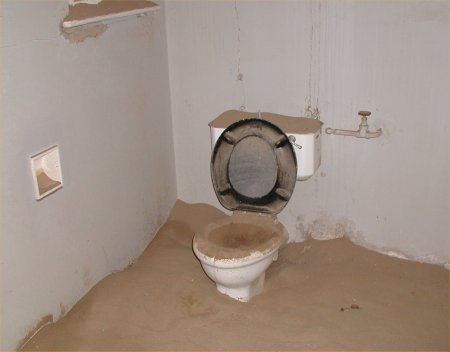Required Blog for EDCI 602, Pt. 2
When a student is able to perform a given objective in class without any problems, gives a questionable effort on their homework, then fails the objective entirely on the subsequent test, did the teacher do something wrong? This happened to me in regard to solving absolute value equations and inequalities. In order for summer school, in its condensed format, to work, 100% effort on the part of students is absolutely essential. We just do not have time to keep doing things over and over again, as one might do at times during the course of a normal school year. Already, we are covering only about 70% of the state objectives over the course of this three-week summer course. Could I have presented the material in a better, more stickable way? Perhaps. But how? How do you explain absolute value equations—splitting each equation in two because the part inside the absolute value might be positive or it might be negative—with blue Play-Doh?
One goal which has been reasonably successful has been my efforts to get the students to add and subtract with negative numbers correctly. I taught them a pneumonic trick about like signs and difference signs which the Algebra I teacher at my school uses, and this has given the students a frame of reference if we have to stop and correct a mistake. They seem to be remembering the rule fairly well, even if they forget to apply correctly sometimes. Part of the reason this has happened is because it happens so often. Negative numbers occur all the time in algebra, so it there are plenty of opportunities to reinforce this baseline (pre-)objective. My co-teachers have followed my example to some extent, as I have heard them referring to the same rule once or twice.
The most striking example of how we have differentiated learning in our classroom has been to use our club activity time to offer extra tutoring to a student who is really far behind. This has met with limited success. I suspect this particular student has a learning disability, as she is extremely slow to answer any question related to class, no matter how basic. She needs far more help than we can offer her in summer school. We have spoken to her mother, who seems to hold delusions that this child is going to squeak through Algebra I this summer so she will not have to take two maths her (upcoming) senior year. She failed our first test, which was little more than basic operations and exponents; she is going to fail the state test without a prayer unless she gets a full-time, private tutor. That is the sad reality.
I believe my procedures have been effective at imparting information and keeping students involved and listening to abstract math procedures. They are often somewhat one-dimensional, lacking a certain amount of creativity and multi-learning style approaches that arguably would improve student retention. This is one of the major areas I would like to improve.


0 Comments:
Post a Comment
<< Home